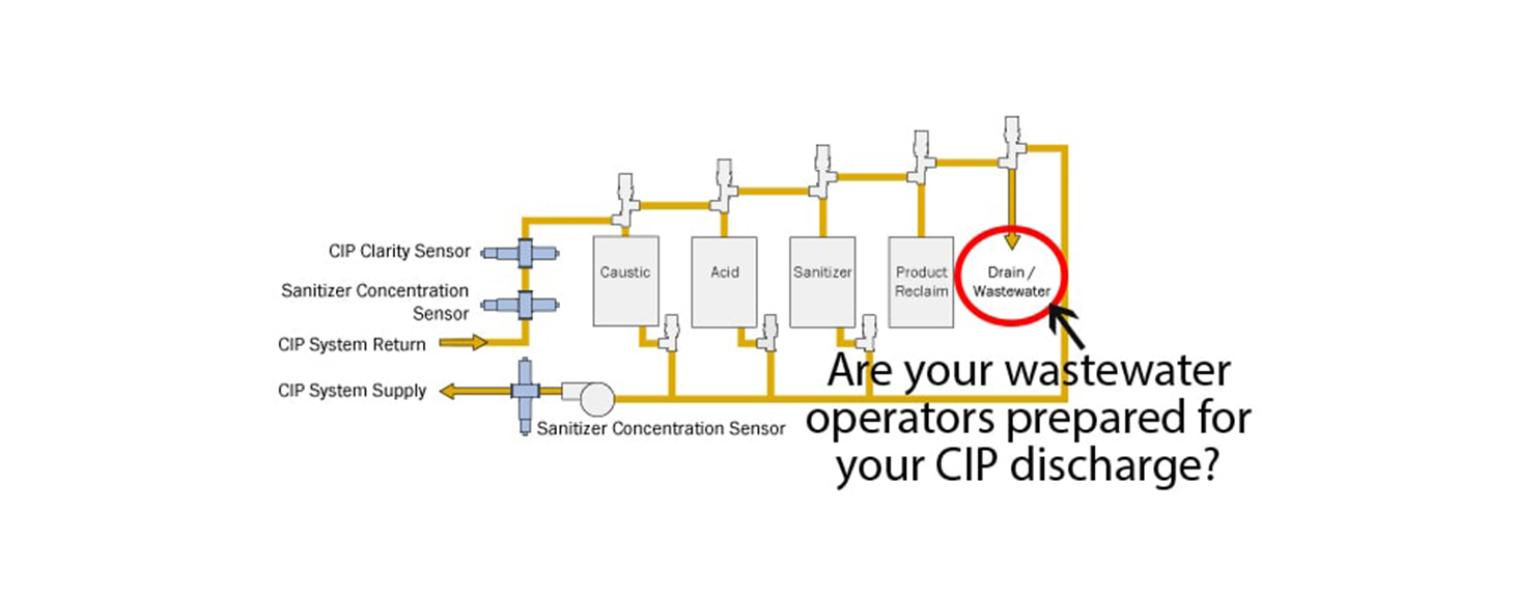How CIP Affects the Wastewater Process
Food and beverage manufacturers are committed to food safety, which includes proper sanitation practices and Clean In Place (CIP) processes. When these practices are consistent, it greatly enhances the company’s safety programs. If the equipment and facility meet clean standards at the beginning of each run, challenges inherent to food production safety are minimized. In turn, when wastewater operators are informed and educated about sanitation and CIP process, proper wastewater treatment protocols are used, helping meet sustainability goals.
Sanitation Best Practices
One of the most important aspects of sanitation and wastewater treatment is having a well-trained staff. In addition to sanitation and wastewater personnel, the maintenance staff must also understand how their activities affect sanitation efforts, as do those that are responsible for the end of production housekeeping. Understanding the link between their actions and sanitation, as well as monitoring and reinforcement of best practices, helps to facilitate a culture committed to following the rules.
There are five basic elements to sanitation excellence:
- Environmental factors assessment
- Continuous improvement
- Application of consistent, daily sanitation procedures
- Periodic sanitation, such as tear down and heat
- Substantiation of effective sanitation
CIP Impacts Wastewater Treatment
There isn’t always a direct line or correlation between what happens on the facility floor and how it affects wastewater treatment. However, they are linked.
In most food & beverage and pharmaceutical facilities, chemicals like chlorine, caustic soda, phosphoric and nitric acids, sodium hypochlorite (hypo), and peracetic acid (PAA) are used to clean equipment. This water is then discharged for treatment, which causes a fluctuation in the pH level, flow rates, and temperatures. With this comes challenges for wastewater operators. Therefore, sanitation and wastewater operators must communicate regularly to improve the success of the treatment process. Wastewater operators need to know when sanitation processes occur, the chemicals used, and the volume of water. This keeps all operators on the same page for a more efficient process.
The Dangers of Not Optimizing CIP
When your facility doesn’t optimize CIP, your entire wastewater system could be at risk. If the higher flow rates during CIP and sanitation are not taken into account, undersized equalization tanks may be in place, resulting in poor wastewater treatment.
Contaminant loading rates are then underestimated or calculated for normal production, and because the higher initial contaminant load is not accounted for during sanitation and CIP, treatments are not fully optimized.
If the facility does not have a flow meter in place, this can cause under- and over-estimates of water and chemical usage. Without the accuracy that good sanitation practices and CIP can offer, data is typically inaccurate, making it very challenging to formulate a sustainability plan.
Automated Wastewater Treatment Can Solve Human Error and Lower Operational and Chemical Costs
Don’t know where to start? No problem! We’ll ask the right questions to the sanitation and wastewater personnel to design the right solution for your specific needs.
Typically, CIP processes occur at the same time on a consistent basis. With proper sampling and testing of wastewater to understand the pattern, MacDermid Envio automation capabilities can effectively and efficiently manage your wastewater during your facility’s CIP processes. Not only that, we’ll set flow meters to measure actual process flow, engage in 24-hour composite sampling and testing of wastewater, and look at pH control loops as well as properly sized equalization equipment.
We believe in creating integrated wastewater systems that are simple and effective. Our holistic approach to wastewater treatment includes design, install, service, providing the right chemicals, and optimizing chemistry dosage. Clients, like this dairy producer, have noticed a reduction in chemical cost and operational cost after implementing our solutions. Learn more about how MacDermid Envio can help simplify and perfect your wastewater treatment processes.
